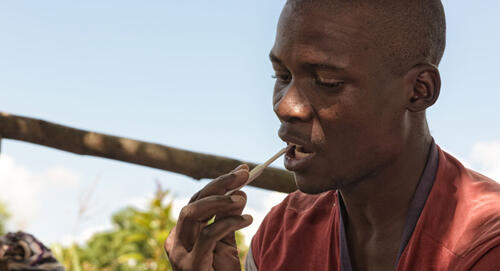
LSTM’s Dr Miriam Taegtmeyer is in Nairobi this week for a two-day HIV Self-Testing (HIVST) workshop hosted by the UNITAID PSI HIV Self-Testing Africa (STAR) Project.
The workshop, HIV Self Testing – Going to Scale, brings together all of the projects key stakeholders, and will take place on Wednesday and Thursday (29-30 March) and will focus on sharing the latest evidence and lessons learned on HIVST and will provide a forum for key leaders from Ministries of Health, civil society, regulators, donors and implementers to meet, share experiences and discuss global scale-up. In addition to presenting the latest research findings, focused skills building sessions in specific areas will accompany plenary and panel discussions on getting started at national level, on integration into community health, distribution models. The workshop is preceded by supplementary meeting hosted by the World Health Organization (WHO) to roll out their new HIVST guidelines for the Africa Region.
Phase One of STAR has seen UNITAID invest $23 million over two years to improve access to HIV testing in Malawi, Zambia and Zimbabwe and the consortium,led by Population Services International (PSI),is made up of in-country partners along with LSTM, University College London (UCL), the World Health Organisation (WHO), with research being led by the London School of Hygiene and Tropical Medicine.
Dr Miriam Taegtmeyer from LSTM’s Department for International Public Health is co-ordinating the Qualitative Research Network and leading the regulatory pathways work stream. She has been in Nairobi with her team, working to finalise the arrangements for the workshop and meetings. She said: “There will be a great deal to get through in this next week, but we are all delighted to have been involved. The STAR project has been set up in order facilitate more people knowing their HIV status and being able access life-saving care. The work that we have already carried out has informed the WHO guidelines being rolled out this week. Partners in countries wishing to scale-up HIVST can now use this evidence and experience to identify priority actions for country adaption, implementation and technical assistance needs. The aim is that all countries are able to reach not only their testing, but also their HIV prevention, care and treatment goals in the most effective ways possible and HIV self-testing will help them to do just that.”
Phase Two of the Star project, which is planned to begin this year, aims to scale up successful distribution models and demonstrate the population-level impact of HIVST.
For more information on the STAR project's research, visit our website and follow us on twitter: @HIVSTAR_LSHTM